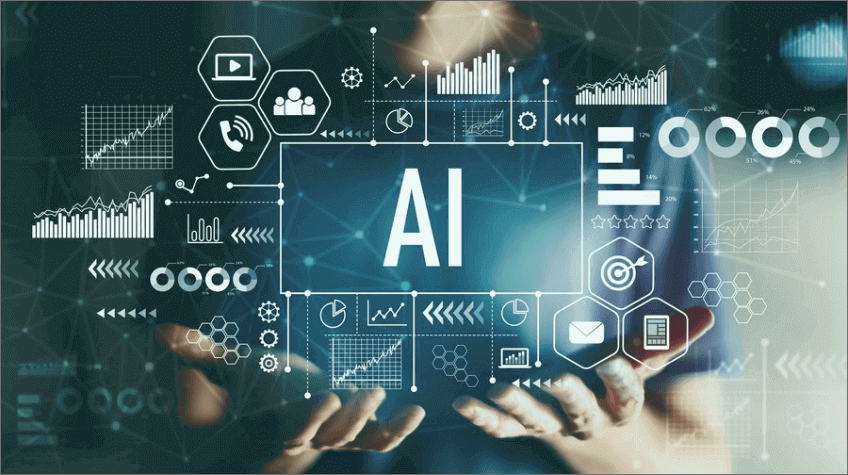Understanding Digital Transformation AI
Businesses today are undergoing a major shift as AI-driven technologies redefine how organizations operate. Digital Transformation AI refers to the integration of artificial intelligence into business processes to enhance efficiency, improve customer experiences, and drive innovation. This shift is no longer optional; companies that fail to adapt risk falling behind their competitors. AI technologies such as machine learning, automation, and advanced data analytics are streamlining operations, making businesses more agile and responsive to market demands. The growing availability of AI tools is helping organizations automate repetitive tasks, minimize human error, and analyze vast amounts of data in real time. AI-driven digital transformation enables businesses to make more informed decisions and offer personalized experiences to their customers. With AI continuously advancing, businesses that leverage its capabilities gain a competitive edge by optimizing their processes and meeting customer expectations more effectively.
Key Technologies Driving AI-Powered Digital Transformation
Several technological advancements play a crucial role in AI-driven transformation. Cloud computing enables businesses to store and process vast amounts of data while integrating AI-powered analytics for real-time insights. The rise of generative AI and natural language processing (NLP) allows businesses to automate content creation, improve customer interactions, and enhance language-based tasks. Internet of Things (IoT) technology further strengthens AI capabilities by collecting and analyzing data from connected devices, optimizing logistics, and enhancing operational efficiency. AI is also making strides in cybersecurity, where intelligent algorithms detect threats and respond to cyber risks before they escalate. Another key driver is big data analytics, which allows companies to process massive datasets and extract meaningful patterns to improve decision-making. These technologies work together to create a more efficient, intelligent, and interconnected business environment. Companies that embrace these advancements can enhance operational efficiency, customer engagement, and strategic growth.
AI’s Role in Different Industries
Artificial intelligence is transforming industries by improving efficiency and enhancing decision-making. In healthcare, AI enables faster and more accurate diagnoses, personalized treatment plans, and predictive analytics that help prevent diseases before they develop. Financial institutions rely on AI for fraud detection, risk management, and algorithmic trading, ensuring secure and efficient transactions. The retail sector benefits from AI-driven customer insights, enabling businesses to deliver personalized shopping experiences, optimize inventory management, and predict consumer behavior. Manufacturing industries use AI for predictive maintenance, quality control, and supply chain optimization, reducing costs and minimizing downtime. Marketing professionals utilize AI-powered tools such as chatbots, automated content generation, and targeted advertising to enhance customer engagement. AI’s applications are not limited to these industries; nearly every sector is leveraging AI to enhance productivity, reduce operational costs, and deliver better customer experiences.
The Benefits of AI in Digital Transformation
Businesses integrating AI into their digital strategies gain significant advantages. AI enhances efficiency by automating time-consuming tasks, allowing employees to focus on higher-value work. Cost reduction is another key benefit, as AI helps optimize resource allocation, minimize errors, and improve operational workflows. AI-driven insights allow businesses to make data-backed decisions, resulting in improved strategic planning and execution. Customer experiences are enhanced through personalized recommendations, intelligent chatbots, and automated customer support, leading to higher satisfaction and loyalty. AI also increases agility by enabling businesses to adapt quickly to market changes and consumer demands. Companies that implement AI effectively can maintain a competitive edge by responding to industry shifts with speed and precision. As AI continues to evolve, its benefits will expand, offering even greater opportunities for businesses to scale and innovate.
Challenges and Ethical Considerations of AI in Digital Transformation
Despite its advantages, AI implementation comes with challenges and ethical considerations. Data privacy remains a major concern, as businesses must ensure that customer information is securely handled and protected from breaches. AI algorithms may also contain biases, leading to unfair outcomes that can negatively impact hiring, lending, or healthcare decisions. Workforce disruptions are another challenge, as AI-driven automation may replace certain jobs, requiring companies to invest in upskilling and reskilling employees. Regulatory compliance is critical, with governments and organizations working to establish guidelines for ethical AI usage. Businesses must also ensure transparency in AI decision-making, particularly in sectors where AI impacts critical choices. Addressing these challenges requires a responsible approach to AI integration, balancing innovation with ethical considerations. Companies that prioritize ethical AI practices will build trust with their customers and create sustainable, long-term growth.
How Businesses Can Successfully Implement AI in Digital Transformation
Implementing AI effectively requires a strategic approach. Businesses must first identify the right AI solutions that align with their specific needs and objectives. This involves evaluating current workflows and determining where AI can provide the most value. Employee training and upskilling are essential, as organizations must prepare their workforce to work alongside AI technologies. Companies should also focus on integrating AI into their existing digital infrastructure to ensure seamless functionality. Continuous monitoring and performance assessment are necessary to refine AI-driven processes and optimize outcomes. Collaboration with AI experts and technology partners can further enhance the success of AI implementation. Organizations that take a well-planned approach to AI adoption can maximize its benefits while minimizing potential risks. The key is to view AI as an enabler of growth, efficiency, and innovation rather than just a technological trend.
Future Trends of AI in Digital Transformation
The evolution of AI will continue to reshape business landscapes. AI-powered hyper-personalization is expected to transform customer interactions, offering highly customized experiences based on individual preferences. Autonomous systems, including AI-driven robotics and self-learning machines, will revolutionize industries such as transportation, logistics, and manufacturing. The expansion of AI within the metaverse is another emerging trend, creating virtual environments that enhance digital engagement and business interactions. Explainable AI (XAI) will become increasingly important, ensuring that AI-driven decisions are transparent and understandable to humans. Businesses must stay ahead of these trends by continuously exploring new AI applications and innovations. The future of AI in digital transformation is promising, offering opportunities for businesses to create smarter, more adaptive, and highly efficient operations.
Frequently Asked Questions (FAQ)
- How does AI contribute to digital transformation?
AI enhances business processes by automating tasks, analyzing data for better decision-making, and improving customer interactions through personalized experiences. - What industries benefit the most from AI-driven transformation?
AI has a significant impact on healthcare, finance, retail, manufacturing, and marketing, among other industries, by optimizing efficiency and enhancing decision-making. - What are the risks of using AI in business?
Risks include data privacy concerns, potential biases in AI algorithms, workforce disruptions, and regulatory challenges that businesses must address responsibly. - How can small businesses integrate AI into their operations?
Small businesses can adopt AI-powered tools such as chatbots, automated analytics, and digital assistants to enhance efficiency and customer service without requiring extensive resources. - What are the future possibilities of AI in the workplace?
AI will continue to drive hyper-personalization, autonomous systems, and intelligent automation, transforming how businesses operate and interact with customers.
Final Thoughts
Businesses that embrace Digital Transformation AI position themselves for long-term success. AI-powered technologies are streamlining operations, improving customer engagement, and driving innovation across industries. As AI continues to evolve, companies must stay informed about emerging trends and ethical considerations. Organizations that implement AI strategically will gain a competitive advantage, optimize their workflows, and create new opportunities for growth. The future of AI in digital transformation is dynamic, offering limitless potential for businesses willing to adapt and innovate.















